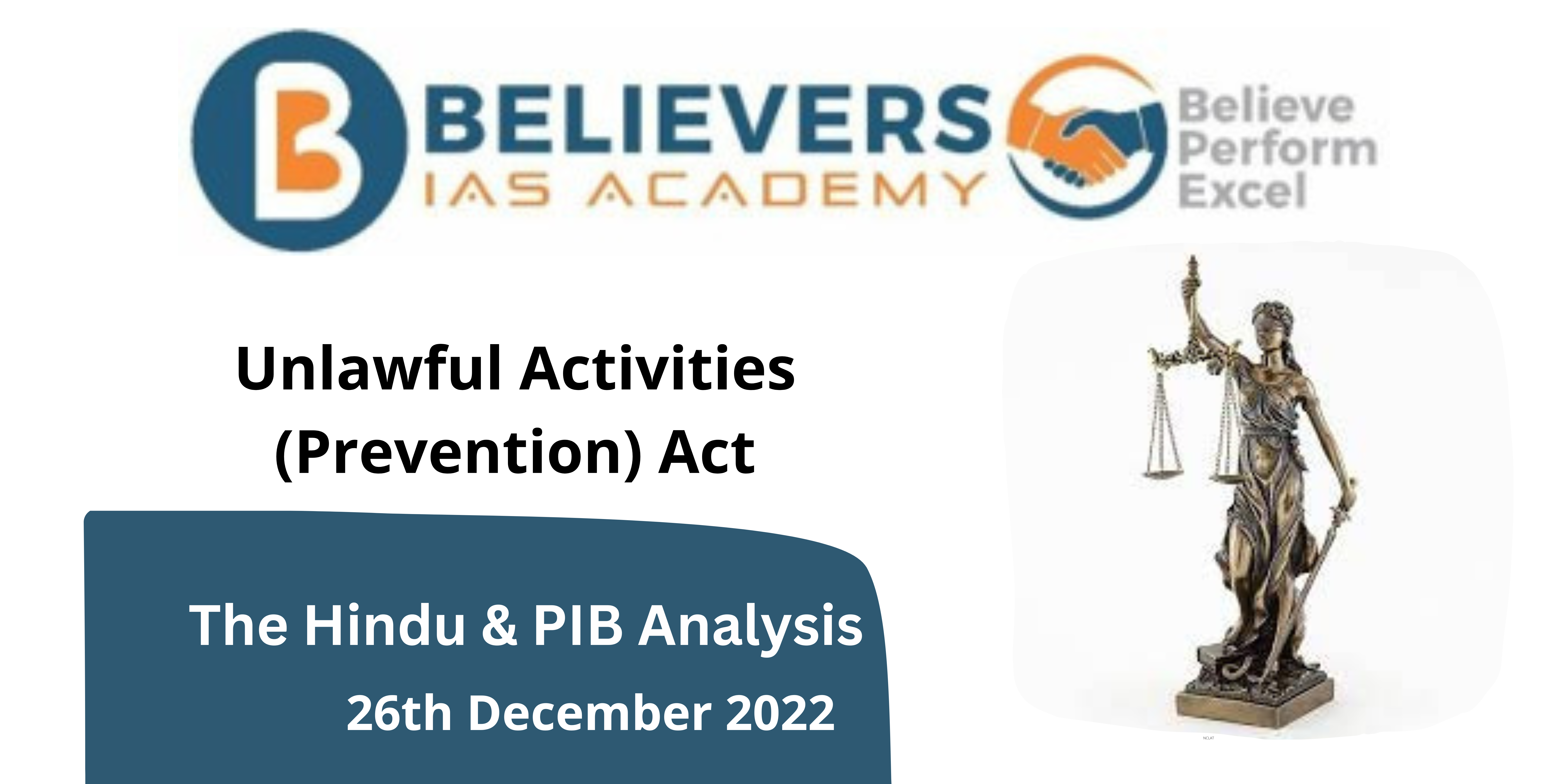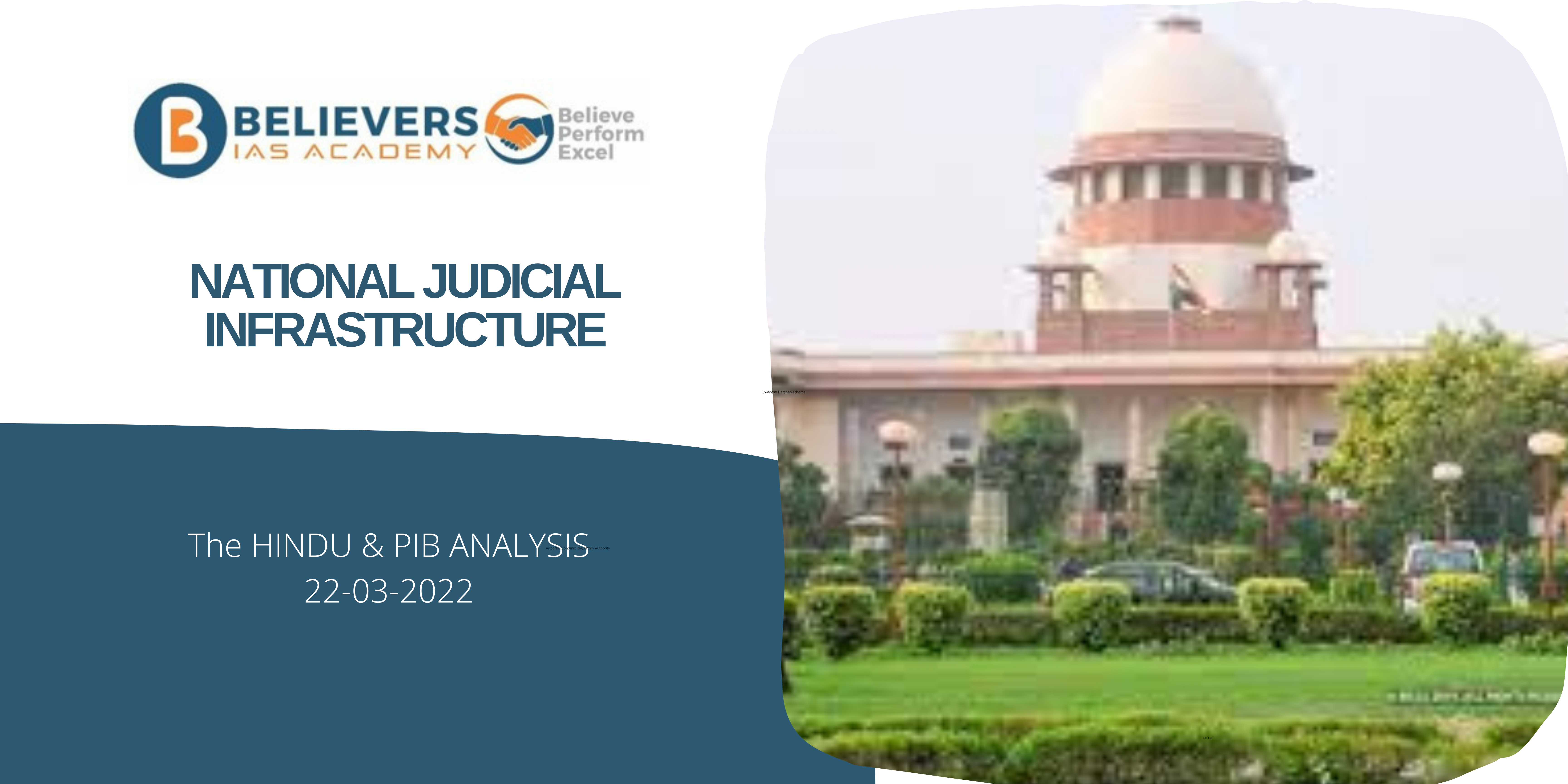Unlawful Activities (Prevention) Act
#GS-02 Governance, #GS-03 Internal Security
For Prelims
Unlawful Activities (Prevention) Act
- Unlawful Activities (Prevention) Act was enacted in 1967 by the Union Government for effective prevention of unlawful activities associations in India.
- According to the act, an activity can be deemed unlawful if and when the central government by way of an Official Gazette, declare it so.
- “Unlawful” activities till 2004, referred to actions related to secession and cession of territory.
- The UAPA (Amendment) Act of 2004, added “terrorist act” to the list of offences to ban organisations for terrorist activities.
- Presently 34 organisations are banned under this provision.
- The UAPA (Amendment) Act of 2019 included the provision of designating an individual as a terrorist on certain grounds provided in the Act.
Provisions of UAPA:
- UAPA allows the investigating agency to file a charge sheet in maximum 180 days after the arrests and the duration can be extended further after informing the court.
- It also allows the union government to proclaim or designate an organisation as a terrorist organisation if it: (i) commits or participates in acts of terrorism, (ii) prepares for terrorism, (iii) promotes terrorism, or (iv) is otherwise involved in terrorism.
- The Bill also empowers the government to designate individuals as terrorists on the same grounds.
- Both Indian and foreign nationals can be charged under UAPA.
- According to the Act, an investigating officer need to obtain the prior permission of the Director-General of Police to seize properties that may be connected with terrorism.
- The 2019 Amendment changed this provision to say that if the investigation is conducted by an officer of the National Investigation Agency (NIA), the approval of the Director–General of NIA would be required for seizure of such property.
- The act empowers officers of the rank of Deputy Superintendent or Assistant Commissioner of Police or above to conduct the investigation of cases under UAPA.
- The 2019 Amendment additionally empowers the officers of the NIA, of the rank of Inspector or above, to investigate such cases.
Source “‘Blind leading the blind,’ irked HC rebukes judicial officers for a comedy of errors“




